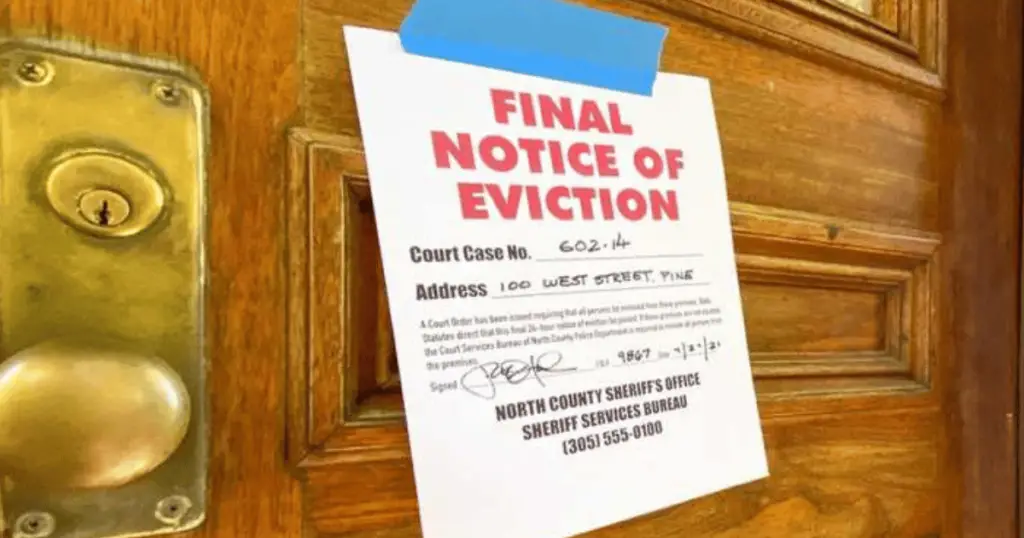Introduction:
Contents
- 1 Introduction:
- 2 The emotional toll of eviction
- 3 Finding temporary shelter
- 4 Exploring government assistance programs
- 5 Seeking legal assistance
- 6 What to do when you are being evicted with no place to go?
- 7 Tapping into community resources
- 8 Job loss and financial struggles
- 9 Crafting a personal emergency plan
- 10 Connecting with local support groups
- 11 Exploring alternative housing options
- 12 Educational resources for empowerment
- 13 Planning for long-term stability
- 14 Addressing family needs in crisis
- 15 Reflecting on resilience and overcoming challenges
- 16 FAQS:
- 17 What steps can I take to understand the eviction process?
- 18 How can I cope with the emotional toll of eviction?
- 19 Where can I find temporary shelter in the event of eviction?
- 20 Are there government assistance programs available for individuals facing eviction?
- 21 How can I seek legal assistance during the eviction process?
- 22 What communication strategies are effective when dealing with landlords during eviction?
- 23 Are there community resources available to help during eviction?
- 24 How can I manage financial struggles resulting from job loss during eviction?
- 25 What steps should I take to craft a personal emergency plan for long-term stability?
- 26 How can I connect with local support groups during eviction?
Being evicted with no place to go is tricky; people are forced to leave their homes due to money problems or landlord issues. It can make them homeless or stay temporarily with friends or in shelters. This makes life uncertain and scary, making it hard to keep jobs or get healthcare. We need better support and cheaper homes to help people facing eviction.
The emotional toll of eviction
The emotional impact of eviction is substantial and should not be underestimated. Coping strategies and mental health considerations become crucial during these challenging times. Building a strong support system, comprising friends, family, or support groups, becomes an essential component in dealing with the emotional toll of eviction.
Finding temporary shelter
Immediate solutions often involve finding temporary shelter. Local homeless resources and emergency housing options become lifelines for those facing eviction without a place to go. This aspect ensures a basic level of stability while more long-term solutions are explored.
Exploring government assistance programs
Government assistance programs play a pivotal role in providing financial support for individuals facing eviction. Understanding available subsidies, grants, and access to social services becomes crucial in alleviating the immediate financial burden.
Seeking legal assistance
Navigating the legal aspects of eviction is essential. Seeking legal assistance, including consulting with legal aid and understanding tenant protections, empowers individuals to navigate the legal landscape effectively. Open communication with landlords is also a key strategy.
What to do when you are being evicted with no place to go?
What to Do When You Are Being Evicted With No Place to Go · 1. Know Your Rights · 2. Stop the Eviction · 3. Get Help · 4. Borrow Some Money

Tapping into community resources
Communities often provide valuable resources for those facing eviction. Non-profit organizations, local charities, and assistance programs can offer financial and emotional support during difficult times.
Job loss and financial struggles
For many individuals facing eviction, job loss contributes significantly to financial struggles. Exploring unemployment benefits and implementing practical budgeting tips during crises become important strategies in managing finances.
Crafting a personal emergency plan
Planning for unforeseen circumstances is crucial for long-term stability. Creating a budget, emphasizing emergency savings, and engaging in long-term financial planning ensure individuals are better prepared for future challenges.

Connecting with local support groups
Building connections within the community is an important strategy. Connecting with local support groups provides a platform for sharing experiences, offering advice, and building a sense of community during challenging times.
Exploring alternative housing options
Exploring alternative housing options, such as temporary rentals, and sublets, and utilizing short-term housing platforms, provides flexibility and additional choices for individuals facing eviction.
Educational resources for empowerment
Empowerment through knowledge is essential. Workshops on tenant rights and financial literacy classes empower individuals to make informed decisions and understand their rights better.
Planning for long-term stability
Planning for long-term stability involves setting realistic goals and developing a sustainable housing plan. This includes considering factors like employment, housing, and overall financial well-being.
Addressing family needs in crisis
During times of crisis, addressing family needs is paramount. This involves supporting children through transitions and accessing available family services to ensure the well-being of all family members.

Reflecting on resilience and overcoming challenges
Reflecting on resilience and overcoming challenges is a crucial aspect of the journey. Sharing success stories and inspirational journeys encourages individuals to learn, grow, and find strength in the face of adversity.
you may know about these:
FAQS:
What steps can I take to understand the eviction process?
Understanding the eviction process involves familiarizing yourself with legal procedures, tenant rights, and recognizing common causes that might lead to eviction. Seeking information and legal advice can provide clarity during this challenging time.
How can I cope with the emotional toll of eviction?
Coping with the emotional toll of eviction requires implementing effective strategies and prioritizing mental health. Building a strong support system, including friends, family, or support groups, can provide valuable emotional assistance.
Where can I find temporary shelter in the event of eviction?
In situations where eviction leaves you without a place to go, immediate solutions often involve finding temporary shelter. Local homeless resources and emergency housing options can provide essential stability during these uncertain times.
Are there government assistance programs available for individuals facing eviction?
Yes, various government assistance programs offer financial support to individuals facing eviction. These programs may include subsidies, grants, and access to social services to alleviate immediate financial burdens.
How can I seek legal assistance during the eviction process?
Seeking legal assistance involves consulting with legal aid to understand your tenant rights and navigate the legal landscape effectively. Open communication with landlords is also crucial, and legal advice can guide you in negotiating potential solutions.
What communication strategies are effective when dealing with landlords during eviction?
Open dialogue and negotiation are key communication strategies when dealing with landlords during eviction. Discussing repayment plans or exploring alternative arrangements can sometimes lead to mutually beneficial solutions.
Are there community resources available to help during eviction?
Yes, communities often provide valuable resources for those facing eviction. Non-profit organizations, local charities, and assistance programs can offer financial and emotional support during challenging times.
How can I manage financial struggles resulting from job loss during eviction?
Financial struggles resulting from job loss can be managed by exploring unemployment benefits and implementing practical budgeting tips during crises. Understanding available resources is crucial for effective financial management.
What steps should I take to craft a personal emergency plan for long-term stability?
Crafting a personal emergency plan involves creating a budget, emphasizing emergency savings, and engaging in long-term financial planning. These steps ensure better preparedness for unforeseen circumstances in the future.
How can I connect with local support groups during eviction?
Connecting with local support groups is an important strategy during eviction. These groups provide a platform for sharing experiences, offering advice, and building a sense of community during challenging times.

